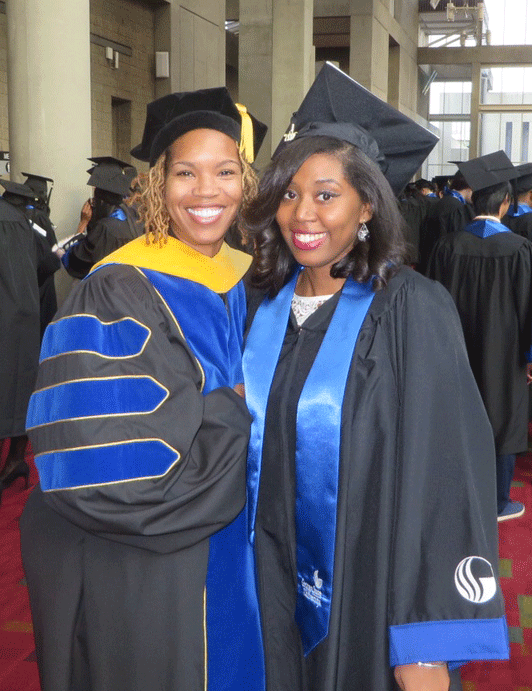Be A Rock-Star Undergraduate Research Student
Another fantastic, and seemingly irreplaceable, undergraduate research student has graduated this month and will be leaving my lab to go out into the real world. Although, perhaps “irreplaceable” is not the best term since I have been lucky enough to have had several fantastic undergraduate researchers work in my lab over the past 6 years. I am talking about the type of undergrad research student that outshines your PhD students from time to time. Yeah, I said it. And it’s the truth! I’ve blogged before about the benefits of participating in summer undergraduate research programs. Now I am sharing some of the characteristics that I think make for a rock-star undergraduate research student in the lab:
- Enthusiasm. As a PI, I LOVE to feel the excitement and interest of an undergraduate student. It makes me coming in to teach you how to pipette, or do PCR, on those few early mornings (when I really need to be working on grant aims or updating my course content) totally worth it! And yes, I still do this with all my undergrads in the early days because I remember when I was where you are now. And I KNOW what you can become, IF you have a good experience, and IF you have the passion and enthusiasm for research.
- Be ALL in! Be interested in learning about the research going on in the lab as if it’s a class. Half the battle in research is just being interested and immersing yourself in it. I’m interested in almost everything I hear or read in science. Honestly I have to refocus myself all the time!
- Be amicable. Make it easy for us to like you. Because everyone in the lab always wants the undergraduate researcher to have a great experience. Having the ability to get along with the other students and staff in the lab will get you everywhere!
- Be the gnome the lab can’t live without. Autoclaving trash, refilling ethanol bottles, keeping the tip racks filled, picking up and putting away packages, keeping the lab organized and tidy. This is the work that keeps the lab going! We rely on it more than you can know! Plus, a smile while doing the grunt work will make it more likely that you can move on to other projects and learn new techniques. #LabGnome
- Be inquisitive. That’s what being a scientist is all about at the core. Ask graduate students in the lab questions about their projects. Ask the graduate students what they are working on when you see them, or what technique they are using and how it works. This does two things: 1) It gets you thinking and using the language of the lab, and 2) It helps the graduate students work on being able to explain their work in a way that you can understand it.
- Support your leader. You will most likely work/help a graduate student with their project. Your job is to eventually be an incredible help to them. Not a drag that they have to hand hold and re-explain details to over and over again. They will love you if you become a true support and eventually help them get more done than they could alone. Added bonus: If you are a really good support, and understand your part in the project, you may end up on a research paper! Two undergraduate students from my lab are authors on publications (one is a first author).
- Take initiative. Apply for, any and all, undergrad research programs or conferences you come across! Then apply for travel grants to go to them. Both locally and nationally. Undergraduate research meetings are worth their weight in gold for the experience and connections you make (both with peers and faculty beyond you primary mentor). My recent undergraduate student submitted her abstract to @ABRCMS and not only got her abstract accepted for an oral presentation at #abrcms2016…but she then went further and applied for a @fasebmarc travel award to attend. She got it (and won an award while there for her oral presentation)! The only thing stopping many undergraduate researchers is their own lack of initiative or ambition.
- Present. Never turn down an opportunity to present your research or project! Present to your friends and family, present to your lab, present at local and national meetings and conferences. Present both posters and oral talks. The poster presentations are a great way to work out the kings and learn the mindset of how to present your research. Now is the time when you get a pass on not knowing every detail because you are early in your training! People love hearing excited and enthusiastic undergrads! Plus you can win awards for this if you do it well (see point 7).
- BE present. Spend time in the lab even when you don’t have a specific task. The lab is a great place to study for your other classes (plus how can you not feel smart in the lab?!). You would be surprised what you can learn or observe by just BEING in the lab.
- Be honest. Be honest with yourself and your lab mates. Are the next two weeks of school jam-packed with exams or projects that will require more of your time than usual? Do you have to ace the next exam in organic chemistry to keep your GPA up to snuff? That is expected. You are an undergraduate student. Just be up-front with you lab mates and PI (who may have come to rely on your dependability and general awesomeness) about the current demands on you outside the lab. Simply communicate when crunch time for you will be, and when they can expect for you to be back in the lab full swing.

My Rock-Star Undergraduate Research Student and I on her Graduation Day 2016. Its so hard to say goodbye!!





